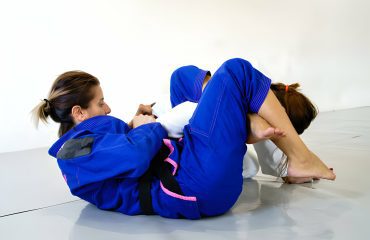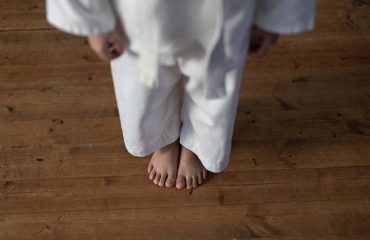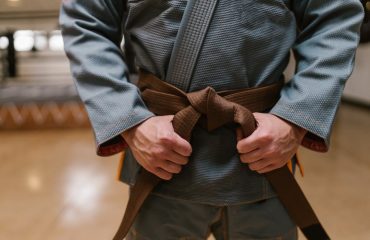Within the realm of martial arts, Brazilian Jiu-Jitsu (BJJ) distinguishes itself as a fundamental discipline for self-defense, prioritizing ground combat and submission maneuvers. Central to BJJ’s efficacy lies a profound comprehension of its black belt levels, denoting not only technical mastery but also a devotion to the principles of the art. These levels epitomize years of commitment, education, and the adept application of techniques in practical scenarios. Grasping the intricacies and obligations tied to each black belt tier can notably augment a practitioner’s self-defense prowess. This piece delves into how these levels elevate self-defense abilities, drawing insights from NOCO Jiu-Jitsu and Self-Defense, a prominent institution in the domain.
The Path to a BJJ Black Belt
The path to a BJJ black belt is marked by a structured progression system that carefully outlines the progression from novice to expert. This system is designed to gradually introduce students to the complexities of Brazilian Jiu-Jitsu, ensuring that foundational skills are solidified before advanced techniques are introduced. As practitioners move from one belt to the next, they are required to demonstrate not only technical proficiency but also an understanding of BJJ’s underlying principles and philosophy. This methodical approach ensures that by the time a student reaches the black belt level, they have a comprehensive understanding of the art, capable of executing and teaching the techniques with precision and depth.
The dedication required to progress through the BJJ belt ranks cannot be understated. Each level demands countless hours of practice, sparring, and reflection, often spanning several years. The experience is as much about personal growth as it is about martial arts proficiency. Practitioners learn to overcome challenges, set and achieve goals, and work effectively with others. These life skills, honed on the mats, are what make the attainment of a BJJ black belt a truly remarkable achievement. It’s a path that shapes individuals into not just skilled martial artists but also resilient and adaptable people, ready to tackle the challenges both on and off the mats.
Understanding Black Belt Degrees
The progression through the degrees of a black belt in Brazilian Jiu-Jitsu (BJJ) is a testament to a practitioner’s evolving mastery, dedication, and contribution to the martial art. Each degree represents a milestone in the practitioner’s progression, with the initial degrees (1st to 3rd) typically focusing on refining and teaching techniques, while the higher degrees (4th to 6th and beyond) recognize the individual’s contributions to the BJJ community and the development of the art. This structured progression ensures that the path never truly ends; there is always more to learn, teach, and share.
The significance of each degree extends beyond the mat. It encompasses a deep understanding of BJJ’s principles, the ability to apply these techniques effectively in self-defense situations, and the skill to impart this knowledge to others. As practitioners advance through the degrees, they also develop a profound sense of responsibility to uphold the art’s integrity and to foster a positive and supportive learning environment for all students. This commitment to continuous improvement and to nurturing the next generation of BJJ practitioners is what makes the black belt degrees so meaningful.
The Role of a BJJ Black Belt in Self-Defense
Training to attain a black belt in Brazilian Jiu-Jitsu (BJJ) furnishes individuals with a diverse array of self-defense capabilities, prioritizing beyond mere physical prowess. The path toward this achievement entails mastering techniques profoundly relevant in practical situations, empowering practitioners to adeptly counter various threats. This regimen underscores the significance of leverage, control, and strategic thinking, rendering BJJ a prime martial art for self-protection.
- Leverage and Technique Over Strength: One of the core principles of BJJ is the effective use of leverage and technique rather than relying on physical strength. This approach allows practitioners to defend against larger and stronger opponents, making it a practical choice for self-defense.
- Situational Awareness: Black belt training in BJJ enhances situational awareness, teaching practitioners to assess and react to threats intelligently. This heightened awareness is crucial in self-defense situations, where quick thinking and decision-making can prevent or de-escalate potential threats.
Additionally, the path to a black belt in BJJ instills a deep understanding of ground control and submission techniques, which are vital in close-combat situations. Practitioners learn to maintain composure under pressure and apply techniques with precision and efficiency.
- Ground Control: Mastery of ground control techniques ensures that a practitioner can manage and neutralize threats effectively, even from a seemingly disadvantaged position.
- Submission Techniques: The arsenal of submission techniques acquired en route to a black belt provides practitioners with non-lethal options to subdue an attacker, emphasizing control and restraint without causing unnecessary harm.
The real-world applicability of BJJ techniques, combined with the strategic mindset developed through black belt training, prepares individuals not only to face physical confrontations but also to approach potential threats with a calm and calculated demeanor. This comprehensive skill set is what makes BJJ black belts proficient in self-defense, and capable of protecting themselves and others in a variety of situations.
NOCO Jiu-Jitsu’s Black Belt Philosophy
At NOCO Jiu-Jitsu, we view the black belt not only as an accomplishment but also as a significant obligation and a fresh start on the martial arts path. It signifies a profound dedication to the tenets of Brazilian Jiu-Jitsu, including reverence, self-control, and continual advancement. Our ethos underscores that attaining black belt status signifies the commencement of a lifelong path of learning, instructing, and honing both skills and character. We maintain that this milestone presents an opportunity to deepen one’s comprehension of BJJ, contribute to the community, and embody the values that define BJJ as a revered and impactful martial art.
Our approach to achieving and honoring the black belt includes several key principles:
- Continuous Learning: We encourage our black belts to remain students of the game, always seeking to learn and adapt. The path doesn’t end at the black belt; it evolves.
- Teaching and Mentorship: Achieving a black belt at NOCO Jiu-Jitsu comes with the responsibility to guide and inspire lower-ranked students, sharing knowledge and fostering a supportive environment.
- Physical and Mental Discipline: We emphasize the importance of maintaining physical fitness and mental sharpness, ensuring that our black belts can perform at their best and handle challenges both on and off the mats.
- Community Contribution: Our black belts are expected to contribute positively to the BJJ community, upholding the art’s traditions and helping to innovate and grow the sport.
- Ethical Practice: Integrity, respect, and humility are core to our philosophy. Our black belts lead by example, demonstrating these values in every aspect of their practice and daily lives.
Our black belt philosophy is integral to our teaching methods and principles. We strive to create an environment where students can grow not only as martial artists but also as individuals. Our comprehensive approach ensures that achieving a black belt is a reflection of personal growth, technical proficiency, and a commitment to the broader BJJ community. We take pride in nurturing well-rounded practitioners who understand the significance of their rank and are prepared to carry the legacy of BJJ forward with honor and integrity.
Advanced Techniques and Strategies
At the black belt level, Brazilian Jiu-Jitsu (BJJ) practitioners are introduced to a range of advanced techniques that significantly bolster their self-defense arsenal. These techniques go beyond the basics, exploring complex ground maneuvers, intricate submissions, and strategic escapes that are effective against various types of assaults. The mastery of these advanced techniques allows practitioners to control and neutralize threats with precision and efficiency, making them invaluable in real-world self-defense situations.
The training for these advanced strategies involves not only physical execution but also a deep understanding of the mechanics and timing behind each move. This level of training enhances a practitioner’s ability to anticipate an opponent’s actions and respond with the most appropriate technique. For instance, learning advanced submissions such as leg locks and chokeholds enables practitioners to subdue an attacker without relying on brute strength. Similarly, mastering complex escapes and counters prepares them to break free from compromising positions and regain control.
Moreover, these intricate methods are instructed with an emphasis on flexibility and smoothness, enabling practitioners to transition between tactics as required. Such flexibility is vital in self-defense, given the swiftly shifting and unpredictable nature of situations. By incorporating these advanced methods into their repertoire, black belt practitioners cultivate a thorough grasp of applying BJJ principles adeptly in any circumstance, ensuring readiness to protect themselves and others with assurance and skill.
Mental Resilience and Tactical Thinking
Brazilian Jiu-Jitsu (BJJ) training, especially at the black belt level, is a holistic process that significantly develops mental resilience and tactical thinking, key elements for effective self-defense. The path to a black belt is marked by rigorous mental conditioning, teaching practitioners to remain calm under pressure, quickly assess various situations, and make informed strategic decisions. This mental fortitude is crucial not only in the context of martial arts but also in facing the challenges of everyday life, enhancing one’s ability to tackle high-pressure situations with a composed and strategic mindset.
Furthermore, achieving a black belt in BJJ enhances situational awareness and strategic planning skills, enabling practitioners to effectively read their environment, anticipate potential threats, and exploit strategic advantages. This level of training instills a heightened sense of awareness and the capacity for quick, tactical thinking, empowering individuals to protect themselves and others in real-world scenarios. The focus on developing both the mind and body in BJJ ensures that practitioners are equipped with the confidence and clarity needed to tackle dangerous situations effectively, making them physically and mentally prepared for self-defense.
Physical Conditioning and Preparedness
Physical fitness plays a pivotal role in the path toward achieving a black belt, underpinning the effectiveness of self-defense techniques. The rigorous demands of martial arts training necessitate a foundation of strength, agility, and endurance, ensuring practitioners can execute techniques with precision and resist fatigue during confrontations. A well-rounded physical conditioning regimen enhances a practitioner’s ability to manage and apply force, maintain balance during movements, and swiftly recover from defensive positions. Moreover, the stamina built through consistent training increases overall resilience, enabling individuals to handle prolonged physical engagements, which are common in self-defense scenarios.
Training regimens designed to support physical conditioning in martial arts typically include a variety of exercises that target different aspects of fitness. These programs are structured to progressively increase in intensity, pushing practitioners to continuously improve their physical capabilities.
Key components of these training regimens include:
- Strength Training: Focuses on building muscle power and endurance, essential for executing effective strikes and holds.
- Cardiovascular Workouts: Enhances heart health and stamina, allowing practitioners to maintain high energy levels throughout defensive encounters.
- Flexibility Exercises: Increases range of motion, crucial for performing a wide array of techniques and avoiding injuries.
- Agility Drills: Improves quickness and coordination, enabling faster reaction times to threats.
- Balance Training: Develops stability and body awareness, key for maintaining control in grappling and striking situations.
Incorporating these elements into a regular training schedule not only prepares individuals for the physical demands of achieving a black belt but also equips them with the fitness necessary to employ self-defense techniques effectively. This comprehensive approach to physical conditioning ensures that practitioners are not only technically proficient but also physically capable of protecting themselves and others in real-world situations.
The Community Aspect of Training at NOCO Jiu-Jitsu
The supportive community at NOCO Jiu-Jitsu plays a vital role in a practitioner’s development. Training in a positive and encouraging environment helps students apply their skills confidently, both in the dojo and in real-life self-defense situations. The sense of family among members fosters a learning atmosphere where everyone is committed to helping each other grow. This camaraderie extends beyond regular training sessions, creating a network of support that practitioners can rely on. The shared path of learning and improvement at NOCO Jiu-Jitsu strengthens bonds between members, making the pursuit of martial arts excellence a collective endeavor.
Key aspects of the NOCO Jiu-Jitsu community include:
- Regular Group Training Sessions: These sessions are not just about learning techniques but also about building trust and camaraderie among members. Practitioners of all levels work together, fostering an environment of mutual respect and support.
- Mentorship Opportunities: More experienced practitioners often take on mentorship roles, guiding newer members through the complexities of BJJ. This mentorship is a testament to the supportive nature of the community.
- Community Events: NOCO Jiu-Jitsu frequently organizes events outside the dojo, such as seminars, workshops, and social gatherings. These events strengthen the community bond and provide additional learning opportunities.
- Open Mat Sessions: These less structured training times allow members to practice with a variety of partners, encouraging learning from different perspectives and techniques.
- Support During Competitions: When members participate in competitions, they often find themselves surrounded by their NOCO Jiu-Jitsu family, offering encouragement and advice. This support system plays a crucial role in building confidence and competitive spirit.
The community aspect of NOCO Jiu-Jitsu is integral to the holistic development of its members, providing a supportive backdrop against which practitioners can hone their skills, build confidence, and prepare for real-world self-defense scenarios.
Taking the Next Step: Joining NOCO Jiu-Jitsu
For those interested in starting their BJJ path or advancing their skills, NOCO Jiu-Jitsu offers a welcoming environment and a clear progression toward a black belt. The benefits of training in BJJ for self-defense are immense, providing not just physical protection but also mental and emotional strength.
Grasping the significance of BJJ black belt degrees is essential for those dedicated to self-defense. At NOCO Jiu-Jitsu and Self-Defense, our dedication lies in offering top-notch training and stressing ongoing growth. Come, be part of our community, and embark on a fulfilling journey toward mastering BJJ, and enriching your self-defense abilities.
Ready to take your self-defense skills to the next level? Sign up for a trial class or consultation at NOCO Jiu-Jitsu today. Join our community and embark on your path towards becoming a proficient BJJ practitioner. Contact us to learn more about how we can help you achieve your self-defense goals through the art of Brazilian Jiu-Jitsu.
